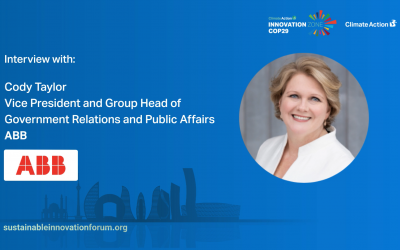Bali’s youth take action to stem the tide of plastic pollution
Climate Action spoke with Melati Wijsen, one of the sisters who founded a movement to ban plastic bags in Bali.

Adam Wentworth, Editor, Climate Action
Bali is one of the most popular tourist destinations in the world, with an estimated 5 million people visiting the island last year. Many visit for the white sands, warm seas, and beautiful scenery.
But Bali also has a problem with waste. A British diver’s recent video of himself swimming through a huge ‘slick’ of plastic went viral. The footage highlighted to a global audience an issue which Melati and Isabel Wijsen know all too well.
As children, the sisters were shocked by the amount of plastic they saw on the island, and the seeming lack of progress towards cleaning it up. In response, they decided to launch the Bye Bye Plastic Bags initiative in 2013. The project has been hugely successful in raising awareness and action on the issue. The girls have worked with the local government on new policies; given speeches at major events around the world; and helped set up 16 teams in different countries to promote similar environmental initiatives.
I recently spoke with Melati on the fifth anniversary of the campaign, and asked if there was a turning point in wanting to tackle the problem.
“It was a lesson in class about world leaders and change-makers, such as Nelson Mandela, Martin Luther King, and Lady Diana,” she says.
“We were 10 and 12 at the time. We went home that day thinking about what we can do as kids that will make a difference?”
“Growing up on an island surrounded by ocean we see the negative impact plastic has - it’s hard not to take action. There's no escaping it here. The plastic problem is so in your face.”
They were undeterred by their young age and instead made an asset of the fact that the movement was ‘driven by children’. Melati says the sisters “didn’t want to wait until we were older to stand up for what we believe in, so we didn’t.”
“Without a business plan, strategy or budget we went ahead with our passions and intention to make the island of Bali plastic bag free.”
Choosing plastic bags above other waste was the natural cause as it was what most impacted their daily lives. “As we would play in the rice fields or walk on the beach we saw plastic bags clogging the gutters and piling up in the rivers, by the side of the road.”
They also saw it as a problem that they could realistically tackle. In the five years since the campaign launched they have gained a huge amount of attention for their cause, including getting the Governor of Bali to sign a Memorandum of Understanding on reducing plastic bags. But have attitudes changed so far, and have they seen any improvements?
“The attitudes are changing, public awareness is increasing,” she says, but overall there isn’t the infrastructure to tackle the problem at its root. “There is no collection, or island-wide waste management system; therefore, we are still seeing people burn and dump (plastic bags). There isn't a long-term, easy solution.”
The campaign has instead started its own clean-up operations and educational outreach. Earlier this year, they were able to mobilise 20,000 people to get involved in cleaning up 65 tonnes of plastic waste over a weekend. The year before they collected 40 tonnes of plastic and organic waste.
In a possible response to public pressure on plastics, the Indonesian government has just set strong targets to tackle plastic waste in the country out to 2025. It remains to be seen whether they are serious about change, or whether the new goals are achievable without serious investments in new infrastructure. On this final point, Melati strikes a tone between scepticism and cautiously optimistic.
“For the past five years we have been campaigning to eliminate one piece of plastic item, and still have not managed to see concrete government action towards this goal. So I have my questions when they commit to a reduction of 70 percent of plastic entering oceans within the next seven years.”
“Having said that, it’s a great first step that Indonesia has made these commitments on the international stage. I do believe in their intentions and hope that Bali can lead by example by being the first island in Indonesia to say no to plastic bags.”






